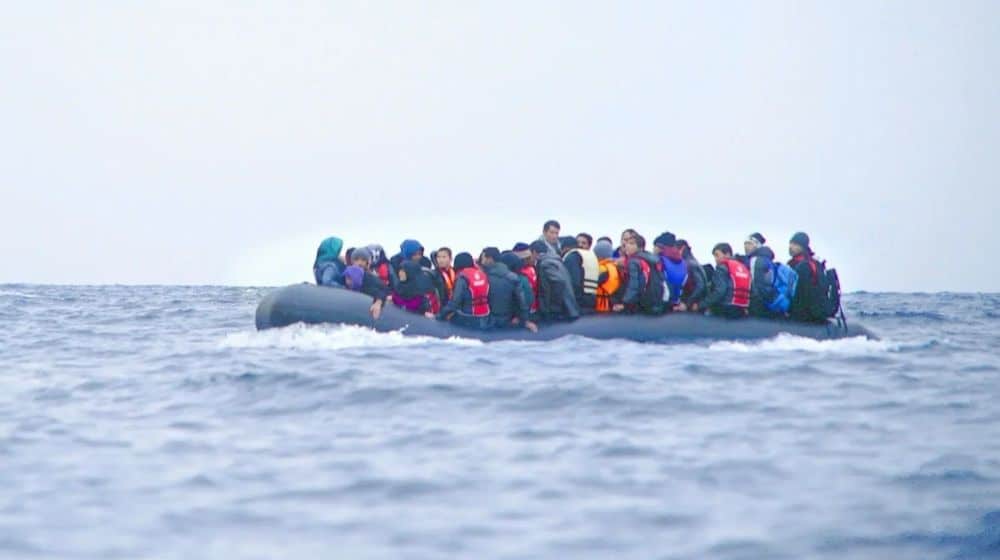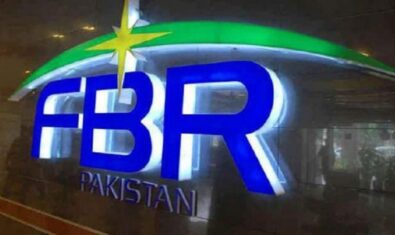An acute economic crisis, rising food insecurity and a lack of jobs are forcing many Pakistanis to embark on dangerous journeys to reach Europe.
The sinking of a boat carrying migrants to Europe on Sunday — resulting in the deaths of dozens of people, including many from Pakistan — has sparked a debate in the South Asian country about the dire economic situation that is forcing many young people to embark on such perilous journeys in search of better conditions abroad.
The boat crashed on rocks and broke up in heavy seas near the town of Steccato di Cutro in southern Italy, killing at least 64 people, including about 14 children.
There were 80 survivors, who said that the boat had been carrying about 180 to 200 people.
Italy has arrested three men, a Turkish man and two Pakistani nationals, in connection with the incident.
Pakistan’s Foreign Ministry said 20 citizens had been on the boat and 16 of them had survived but four were missing.
Prime Minister Shehbaz Sharif has ordered authorities to ascertain the facts, and the Federal Investigation Agency has launched a probe into human trafficking.
Crippling economic crisis
Many Pakistanis and experts say the nation’s crippling economic crisis is a major reason why many people are looking to migrate abroad, even through risky and illegal means.
Pakistan’s economy has been in turmoil in recent years, and desperately needs external financing, with its foreign exchange reserves dipping to about $3 billion (€2.8 billion), barely enough for three weeks’ worth of imports.
The catastrophic floods in 2022 aggravated the crisis by inflicting more than $30 billion in damages and economic losses, and displacing millions of people.
Food prices have soared, and the number of people facing food insecurity has doubled to 14.6 million, according to UN figures.
The World Bank estimated that up to 9 million more people could be dragged into poverty as a result of the flooding.
Over one-fifth of Pakistan’s 220 million people already live below the national poverty line, according to the Asian Development Bank and IMF.
Currently, inflation is running at nearly 30%, the wealth gap is enormous, and tax avoidance by the rich is rampant.
According to industry groups, about 7 million workers have lost their jobs in the textile industry alone as production costs rise and exports dwindle, putting the sector on the edge of collapse.
Shahida Wizarat, a Karachi-based economist, said flawed policies had landed Pakistan in this economic quagmire.
She pointed to the nation’s recurring trade deficits, which have caused depreciation of the currency, resulting in high import costs, rising debt burden and increasing costs for doing business.
Azra Talat Saeed, economist and founder of the NGO Roots for Equity, told DW that the rampant problem of tax avoidance and evasion has also worsened the government’s debt burden.
In Pakistan, the richest 5% of rural households control almost two-thirds of the total agricultural land, she said.
“These rich feudal lords do not pay taxes at all,” she said, “and it is only the poor who are burdened with taxes.”
Seeking IMF support
Pakistan said last week that its longtime ally China had approved a $700 million credit facility for the debt-stricken country.
Islamabad has also been in talks with the International Monetary Fund (IMF) to secure a $1 billion loan payout, from the $6.5 billion bailout agreed in 2019.
Pakistani authorities have already taken a string of measures, including adopting a market-based exchange rate and a hike in fuel and power tariffs; the withdrawal of subsidies; and more taxation to generate revenue to bridge the fiscal deficit.
Officials say the lender is still negotiating with Islamabad over power sector debt, as well as a potential rise in the policy rate, which currently stands at 17%.
The strict measures are likely to further cool the economy and stoke inflation.
Saeed said the policies of international institutions could exacerbate Pakistan’s crisis.
“Our import bill has already risen over the years, and now the IMF demands unrestricted imports, which means that Pakistan’s import bill may witness an exponential surge in coming years,” she said.
Need for job creation
Miftah Ismael, a former finance minister, said the government would need to launch development projects to stimulate the economy and create jobs.
By building houses and roads, Pakistan can prevent millions more from plunging into poverty, he said, stressing the need for providing employment to the nation’s youth.
Mian Ghulam Shabbir, a 42-year-old laborer from Pindi Bhattian area in Punjab province, said Pakistanis were desperately trying to migrate abroad given the lack of economic opportunities in the country.
They have no hope of economic revival, he said, adding that he himself tried to migrate to Italy in 2015.
“Workers earn nothing here after toiling for over 12 hours a day. And they think that if they do the same work in Italy or any other Western country, they can make tons of money, which can help their families,” he said.
“So people will continue to risk their lives in search of work abroad,” he added.
Abida Choudhary, Lahore-based leader of Awami Workers’ Party, pointed out that Pakistan is home to millions of unemployed youths.
And, she said, the rising food insecurity, lack of jobs and soaring prices of basic necessities mean that they “illegally try to migrate to European countries, letting agents bundle them into containers or push them into overcrowded boats, which results in tragedies like the one in Italy.”





















